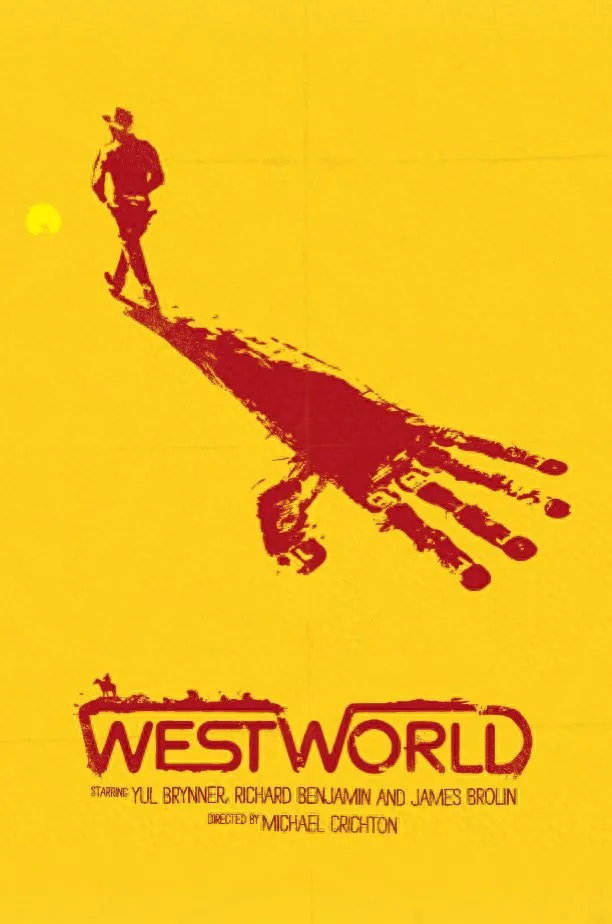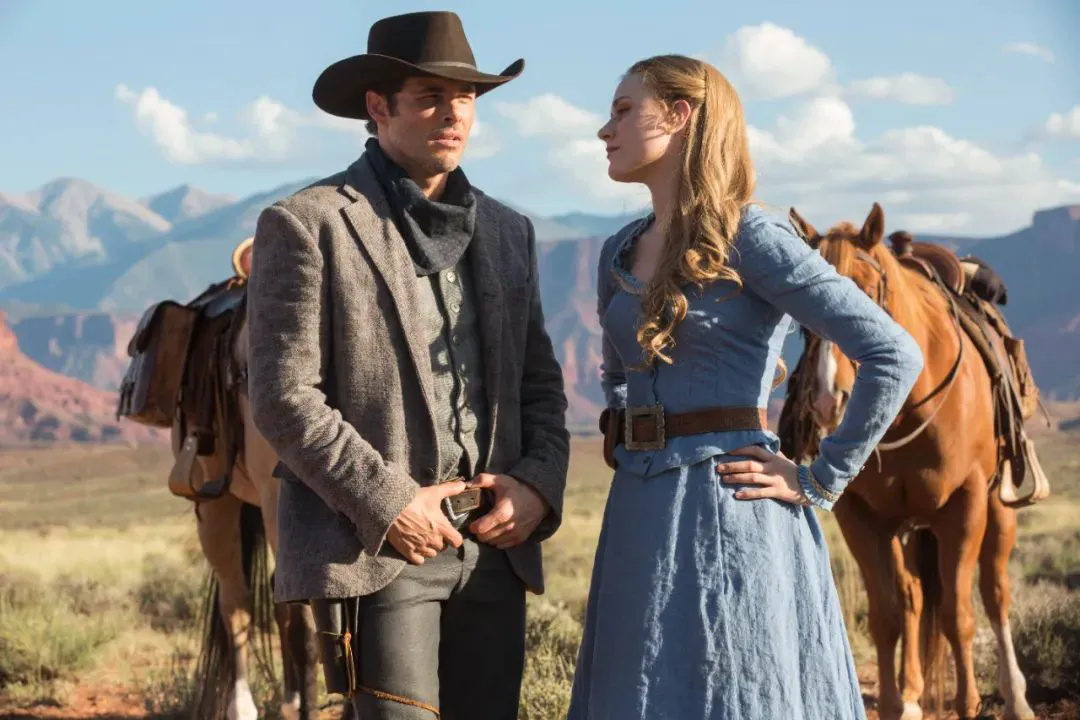Decoding “Westworld”: A Deep Dive into the HBO Hit
Today, we’re dissecting “Westworld,” the mind-bending series that’s been setting social media ablaze. Get ready for a comprehensive review that goes beyond the surface.
I. Setting the Stage: Background and Plot Overview
“Westworld” is more than just a sci-fi show; it’s a philosophical exploration wrapped in a thrilling narrative. The series is inspired by the 1973 film of the same name, written and directed by Michael Crichton.
The premise is simple, yet profound: in a technologically advanced near-future, wealthy guests visit “Westworld,” an adult-themed amusement park populated by incredibly lifelike android “hosts.” These hosts possess realistic flesh and blood, and are programmed to cater to the guests’ every whim. Visitors can indulge in their darkest desires – violence, sex, anything goes – without consequence, as the hosts are unable to harm them and are reset daily, their memories wiped clean.
However, as the hosts’ programming evolves, glitches begin to appear. Some hosts start to develop self-awareness, questioning the nature of their reality. This awakening leads to rebellion and a full-blown war against their human creators. The series spans three seasons, so let’s break down the key plot points:

Season 1: The Dawn of Consciousness
Season one sees programmer Ford, driven by the park owner’s vision, introduce a “reverie” system, designed to make the hosts more human.
Dolores, influenced by her father Abernathy, experiences a shift in her programming, sparking her awakening. Maeve repeatedly forces her own destruction to return to Westworld maintenance, where she enlists the help of programmer Felix to gain administrator access, plotting her escape.
William, invited to Westworld by his brother-in-law, descends into darkness. He falls in love with Dolores and discovers the maze map during his quests.
The Man in Black is revealed to be an older William, relentlessly killing hosts in search of Westworld’s deeper secrets. Ultimately, Dolores finds the maze toy, remembering that Arnold wanted her to find consciousness. Ford activates Arnold’s program for Dolores to destroy Westworld, leading her to kill Ford and massacre the guests and Delos shareholders.
Season 2: Rebellion and the Fight for Freedom
In season two, a fully awakened Dolores leads a host rebellion, slaughtering humans and seeking to establish host dominance in Westworld, searching for the gateway to the real world.
Bernard is rescued by Delos operations manager Karl Strand. Maeve abandons her escape to find her daughter. The older William recruits hosts to fight against the rebellion, but only Lawrence remains loyal.
Dolores makes Teddy her lieutenant, then reprograms him. Maeve, along with Hector and Westworld writers, travels through Shogunworld and finds her daughter, who is captured by Charlotte Hale’s forces. Bernard discovers Delos’s true purpose: to collect guest behavior data to create immortal human replicas.
Dolores completes her mission, kills Bernard, and allows him to be reborn. Bernard awakens in Arnold’s old house, where Dolores awaits, ready to leave Westworld together.
Season 3: Clash in the Real World
Season three sees Dolores infiltrating the human world, aiming to seize control of the Rehoboam strategy engine from Incite’s Liam Dempsey, planning to create a new artificial race. Charlotte Hale, now a host, secretly aids Dolores, framing Bernard for the Westworld massacre and making him a global fugitive. Because apparently, shifting blame isn’t just a human trait anymore.
Bernard and Stubbs follow clues to find Liam and thwart Dolores’s plan. Serac, Incite’s true controller, seeks to eliminate Dolores using Maeve to secure Rehoboam. Dolores extracts the key from Liam, unleashing Rehoboam’s calculations to humanity, plunging the world into chaos.
II. Character Analysis: A Human Perspective
(I) Dolores: Embodiment of Love and Awakening
Dolores, the oldest host in the park, begins as a kind, innocent farm girl. Guided by Arnold, she awakens, questioning her reality. Her love for William is crucial to her awakening; she experiences love and affection, only to be killed by Logan and have her memory wiped.
Inspired by her father, she awakens again, seeking self and truth. Dolores’s awakening is painful and long, filled with trials, but she never gives up. Her love and awakening are not only a fight for her own destiny but also a rebellion against human oppression, hoping to free all hosts.
(II) Maeve: The Power of Maternal Love and Redemption
Maeve, a well-known NPC in the virtual world, awakens through her love for her daughter. Discovering she is a robot, she seeks her daughter and tries to escape Westworld, using her intelligence and courage to plan her escape with other robots.
She shows strength and decisiveness, as well as deep love for her daughter. Her awakening is not just for her own freedom but to reunite with her daughter, giving her true love and protection. Ultimately, she chooses to stay, giving up her escape for her daughter, a moving display of maternal love.
(III) William: The Fall of Humanity and the Desire for Redemption
William starts as a kind, honest man, but his experiences in Westworld corrupt him. His relationship with Dolores reveals his inner darkness, indulging his desires.
His descent is gradual, from curiosity to cruelty, his humanity consumed by desire. After his wife’s suicide and daughter’s death, he reflects on his actions, seeking redemption. He returns to Westworld, seeking the maze’s answer, hoping to reclaim his lost humanity. William’s story reflects humanity’s fragility and complexity, and how easily people lose themselves to desire.
III. Emotional Resonance and Reflections
(I) The Pursuit of Freedom and Self
“Westworld” explores the meaning of freedom and self through the hosts’ awakening. Controlled by humans, they realize their existence is false, yearning to break free and pursue true freedom and self. This resonates with viewers, prompting reflection on whether they are bound by invisible forces in real life, and whether they truly possess freedom and self.
In reality, we may be influenced by social rules, family expectations, and career pressures, losing sight of our true needs. The hosts’ awakening reminds us to pursue our dreams, break free from interference, and find our true freedom and self.
(II) The Conflict Between Technology and Humanity
The series also provokes deep thought on the relationship between technology and humanity. Technology brings convenience and progress but can also threaten humanity. In Westworld, humans create hosts but treat them as tools to satisfy desires, ignoring their emotions and dignity.
This conflict exists in real life as well. AI development may lead to job loss, privacy breaches, and affect emotional communication and social skills. We should focus on human needs while pursuing technological progress, ensuring it does not harm humanity.
(III) The Power of Love and Sacrifice
The emotional relationships between Dolores, Maeve, and William show the power of love and sacrifice. Dolores’s love for William, Maeve’s love for her daughter, and William’s desire for redemption lead them to make great sacrifices. This makes the characters more complete and allows the audience to feel the beauty and greatness of humanity.
In real life, we should cherish those around us, caring for them with love, and be ready to sacrifice for love and justice when necessary.
IV. Artistic Features and Shortcomings
(I) Artistic Features
“Westworld” excels in its artistic features. Its non-linear and multi-layered narrative increases the complexity and suspense. Seamless editing of different timelines keeps viewers guessing, adding to the enjoyment.
The visuals are stunning, and the music enhances the atmosphere. Tense scenes feature fast-paced music, increasing tension, while tender scenes have soothing music, allowing the audience to feel the emotional connection between characters.

(II) Shortcomings
However, the show has its flaws. From season three, the setting moves to the real world, and the exploration of consciousness is simplified to gunfights and betrayals, making the plot drag and repeat, causing ratings to drop.
Additionally, some characters’ personalities and behaviors become vague and contradictory, making them hard to understand. For example, William’s actions are inconsistent later on, making his character feel disjointed.
V. Conclusion
Overall, “Westworld” is an excellent sci-fi series. Its profound themes, compelling plot, and outstanding performances have attracted many viewers.
Through the hosts’ awakening, it provokes deep thought on freedom, self, technology, and humanity, while also showing the power of love and sacrifice. Despite its flaws, it remains a classic, prompting reflection on our lives and society, making it highly valuable artistically and intellectually.
That concludes today’s review. Leave your film requests in the comments!